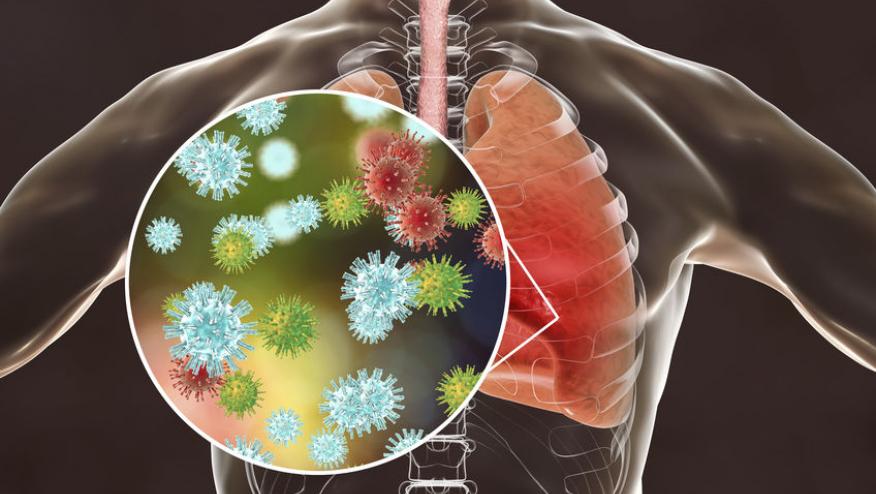Clinical Trial Boom or Bust in Severe COVID-19 Save

A number of recently published clinical trials are further defining the efficacy and outcomes of tocilizumab or remdesivir in treating SARs-CoV-2 infection.
Remdesivir
The final report of the remdesivir trial was reported in the NEJM, showing remdesivir was superior to placebo in shortening the time to recovery in adults who were hospitalized with Covid-19 and had evidence of lower respiratory tract infection. This double-blind, randomized, placebo-controlled trial of intravenous remdesivir in adults hospitalized with Covid-19 pneumonia showed that a 10 day course of remdesivir decreased the recovery time from 15 days (PBO) to 10 days with remdesivir (rate ratio for recovery, 1.29; 95% CI, 1.12 to 1.49; P<0.001, by a log-rank test). Yet there was no significant difference in mortality.
In contrast, the large WHO-sponsored, SOLIDARITY trial, conducted between March 22 to Oct. 4, enrolled 11,330 patients from 30 countries and patients received either remdesivir and three other drugs singly or in combination. The study authors concluded that remdesivir, hydroxychloroquine, lopinavir and interferon regimens had little to no effect on the outcomes of hospitalized COVID-19 (overall mortality, initiation of ventilation or duration of hospital stay).
Tocilizumab
JAMA Internal Medicine reports the results of an "emulated clinical trial" wherein patients in the STOP-COVID multicenter cohort study that included 3924 critically ill patients with COVID-19. They assessed the risk of in-hospital death in those who received tocilizumab treatment in the first 2 days of ICU admission versus those who did not receive early tocilizumab. Overall, the risk of in-hospital death was lower in those with early tocilizumab treatment (vs. not). There were a total of 1544 deaths (39.3%); early TCZ had a lower death rate (28.9%) than those not receiving TCZ (40.6%) (HR, 0.71; 95% CI, 0.56-0.92). The estimated 30-day mortality was 27.5% in the TCZ group and 37.1% in the non-TCZ group.
Another recent trial reported in Chest, looked at the outcomes of 5776 COVID-19 patients (from Northwell Health) with cytokine storm syndrome, to identify the most effective treatments and improve patient survival. Specifically they looked at 6 groups; no immunomodulatory treatment (standard of care), intravenous corticosteroids, anti-interleukin 6 antibody therapy, anti-interleukin-1 therapy (anakinra) -- alone or in combination with corticosteroids. The lowest mortality was seen when corticosteroids were combined with tocilizumab (HR:0.44, 95% confidence interval (CI): 0.35-0.55; p<0.0001) when compared to standard of care. Corticosteroids when administered alone (HR:0.66) or in combination with tocilizumab (HR:0.43) or anakinra (HR:0.68) improved hospital survival compared to standard of care.
Another trial from France, enrolled 130 COVID-19 patients hospitalized with moderate-to-severe pneumonia (not ICU, not ventilated) and were either treated with TCZ or usual care. TCZ 8 mg/kg was given intravenously (plus usual care) on day 1, and on day 3 if clinically indicated. The usual care alone (UC group). received antibiotic agents, antiviral agents, corticosteroids, vasopressor support, and anticoagulants. Tocilizumab was shown to reduce the need for ventilation or death by day 14 (24% vs 36%; HR 0.58; 90% CrI, 0.33-1.00), but not change mortality by day 28 (7 vs. 8 deaths; HR 0.92; 95% CI 0.33-2.53). Serious adverse events occurred in 20 (32%) patients in the TCZ group and 29 (43%) in the UC group (P = .21).
An Italian study also showed no benefit to TCZ use. A prospective, open-label, clinical trial randomized 126 non-ICU COVID-19 pneumonia patients to receive either tocilizumab or usual care (control group). TCZ treated patients received 2 infusions of 8mg/kg 12 hours apart. Clinical worsening within 14 days was similar between groups; 28% in the TCZ arm and 27% in the control group (rate ratio, 1.05; 95% CI, 0.59-1.86). The trial was prematurely halted for futility.
Lastly the NEJM reported the results of a double-blind, placebo-controlled trial of COVID-19 patients with severe acute respiratory syndrome, hyperinflammation nd at least two of the following signs: fever >38°C, pulmonary infiltrates, or the need for supplemental oxygen. A total of 243 patients were given TCZ or placebo. The odds of intubation or death was not different between groups (HR 0.83; 0.38 to 1.81; P=0.64), as was the risk of disease worsening (18% vs 15%; HR 1.11; 0.59 to 2.10; P=0.73).
While many of these trials were well done, disparate results have muddied what could be the standard of care. It may be that timing of antiviral or antiinflammatory intervention may be critical to the outcomes witnessed.










If you are a health practitioner, you may Login/Register to comment.
Due to the nature of these comment forums, only health practitioners are allowed to comment at this time.